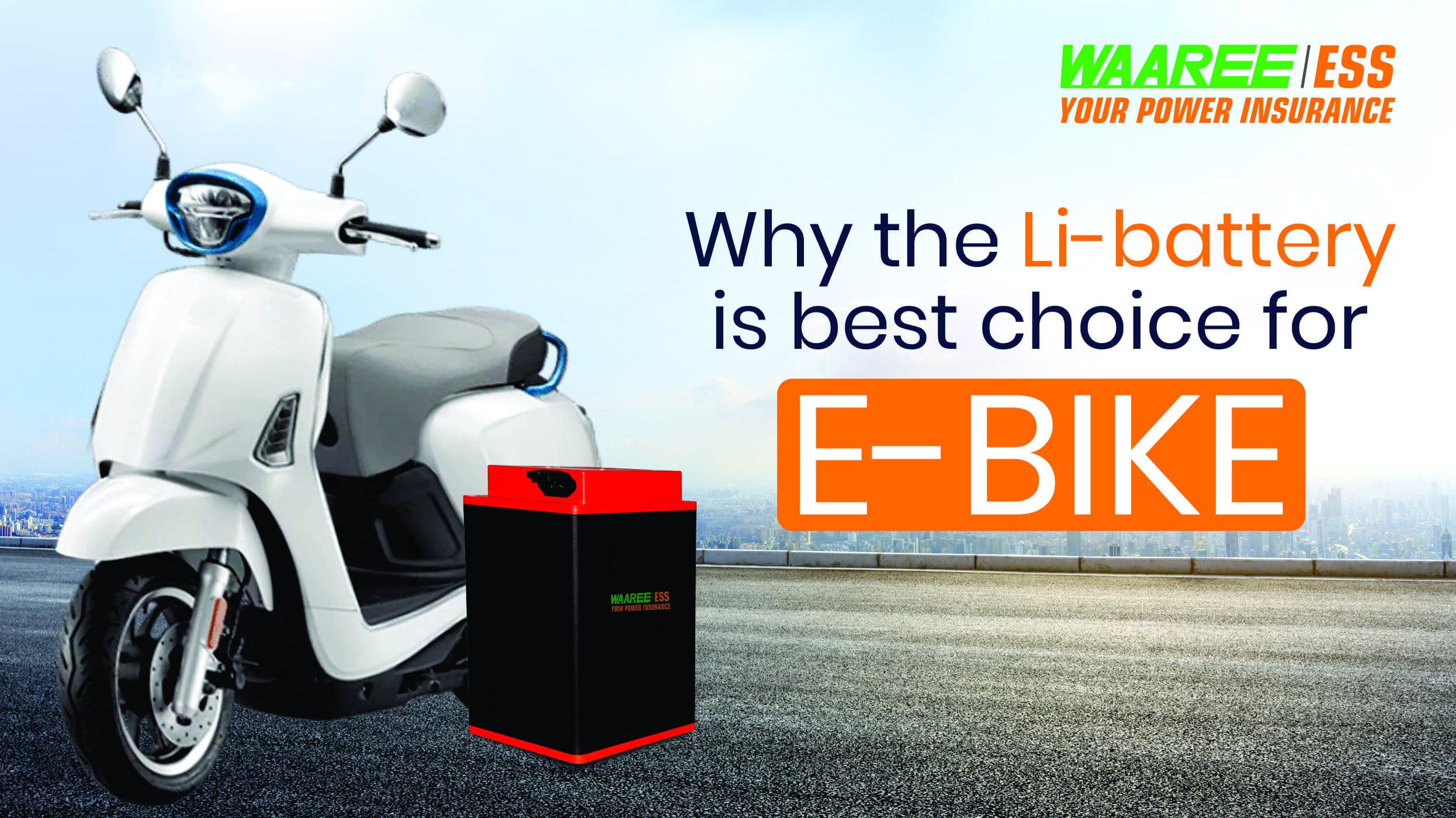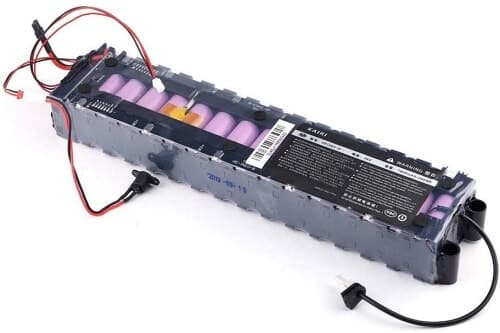Which Type of Battery is Best for Electric Scooter
The best type of battery for electric scooters is the Lithium-Ion (Li-Ion) battery. It offers high energy density and longer lifespan.
Choosing the right battery for your electric scooter is crucial for optimal performance and longevity. Lithium-Ion (Li-Ion) batteries have become the preferred choice due to their high energy density, which allows for longer rides on a single charge. These batteries are also lighter, reducing the scooter’s overall weight and enhancing its efficiency.
Li-Ion batteries charge faster and have a longer lifespan compared to other types, such as lead-acid batteries. They are also more environmentally friendly, as they have lower toxic metal content. Investing in a Li-Ion battery ensures reliable and sustainable performance for your electric scooter.

Credit: wiki.ezvid.com
Introduction To Electric Scooter Batteries
Electric scooters need good batteries to work well. In the past, scooters used lead-acid batteries. Now, most scooters use lithium-ion batteries. These new batteries are lighter and last longer. They also charge faster than old batteries.
Early scooters used heavy lead-acid batteries. These batteries were not very efficient. Next came nickel-metal hydride batteries. These were a bit better but still had problems. Today, we have lithium-ion batteries. They are the best so far.
| Criteria | Description |
|---|---|
| Weight | Batteries should be light to keep scooters fast. |
| Capacity | A high capacity means the scooter can go further. |
| Charging Time | Fast charging is very important for daily use. |
| Durability | Good batteries should last many years. |

Credit: waareeess.com
Lead-acid Batteries
Lead-acid batteries are very affordable and easy to find. Many stores sell them, and they are cheap. These batteries have been around for a long time. They are very popular because they cost less than other types. You can buy them almost anywhere, which makes them very convenient.
Lead-acid batteries are heavy and hard to carry. They take a long time to charge. These batteries do not last very long. They can break easily if not handled well. Lead-acid batteries do not give the best performance. They can slow down the scooter over time.
Nickel-metal Hydride Batteries
Nickel-Metal Hydride (NiMH) batteries offer a balance in performance. They are more efficient than lead-acid batteries. They also last longer. They are less expensive than lithium-ion batteries. This makes them a good middle ground choice. NiMH batteries are often used in hybrid cars. They can also work well in electric scooters.
Middle Ground In Performance
NiMH batteries provide good power output. They can handle moderate loads. They recharge faster than some other types. This makes them convenient for daily use. They are also less prone to overheating. This adds to their safety profile. NiMH batteries can give a decent range for your scooter. This makes them a practical choice for many riders.
Environmental And Durability Considerations
NiMH batteries are more environmentally friendly. They contain fewer toxic metals than other types. They are also recyclable. This makes them a greener choice. NiMH batteries are also durable. They can withstand many charge cycles. This means they can last for several years. They are also less sensitive to extreme temperatures. This makes them more reliable in different climates.
Lithium-ion Batteries
Lithium-Ion batteries provide a high energy density. This means they can store a lot of power. Electric scooters can go further on a single charge. These batteries are also lightweight. This makes the scooter easier to handle. Many people prefer them for their reliability.
Lithium-Ion batteries are more expensive than other types. They last longer though, making them cost-effective in the long run. You might pay more upfront but save money over time. They also have a lower self-discharge rate. This means they keep their charge longer when not in use.
Comparing Battery Lifespan
Lithium-ion batteries last longer than other types. They can handle about 1000 charge cycles. Nickel-metal hydride batteries have about 500 cycles. Lead-acid batteries have the shortest lifespan. They usually last around 300 cycles. Lithium-ion batteries are more expensive but last longer. This makes them a good choice for long-term use.
Batteries with a longer cycle life are better for long-term use. Lithium-ion batteries maintain their capacity longer. Nickel-metal hydride batteries lose capacity faster. Lead-acid batteries degrade the quickest. A battery with more cycles means less frequent replacements. This can save money in the long run.

Credit: riderguide.com
Performance In Various Climates
Lithium-ion batteries work well in cold and hot weather. They are less affected by extreme temperatures. Lead-acid batteries may struggle in very cold climates. They might lose power more quickly. Nickel-metal hydride batteries perform better in moderate temperatures. They are not as effective in extreme heat or cold.
Lithium-ion batteries perform best at 20-25°C. Lead-acid batteries work best around 25°C. Nickel-metal hydride batteries are optimal at 20°C. Each type has different needs for the best performance.
Safety And Maintenance
Lithium-ion batteries offer optimal performance and longevity for electric scooters. They ensure safety, reliability, and require minimal maintenance.
Best Practices For Battery Care
Always keep the battery dry and clean. Avoid extreme temperatures. Charge the battery in a cool place. Use the charger provided by the manufacturer. Store the battery at 50% charge if not used for long. Regularly check for any damage. Clean the battery terminals to prevent corrosion. Follow the manufacturer’s instructions for charging cycles. Do not overcharge the battery. Keep the battery away from flammable materials.
Risk Factors And Prevention
Overcharging can damage the battery. Use a timer to avoid overcharging. Exposure to extreme heat can shorten battery life. Store the battery in a cool and dry place. Physical damage can lead to dangerous leaks. Inspect the battery for cracks or leaks. Water exposure can cause short circuits. Keep the battery dry at all times. Using incompatible chargers can be risky. Always use the recommended charger.
Future Of Batteries In Electric Scooters
New battery technologies are changing. Solid-state batteries offer better safety and efficiency. They charge faster and last longer. Graphene batteries are also emerging. These are lightweight and powerful. Lithium-sulfur batteries might be the future. They store more energy than current options.
Recycling programs for batteries are expanding. This reduces waste. Eco-friendly materials are becoming popular. These materials are better for the planet. Renewable energy is being used to charge batteries. Solar and wind power make this possible.
Making The Right Choice
Each rider has unique needs for their electric scooter. Some people need a long-range battery. Others may want a lighter option. Think about how far you ride daily. Consider the weight you can handle. A lightweight battery is easier to carry. A high-capacity battery lasts longer.
Balancing cost and benefit is crucial. Lithium-ion batteries are more expensive but last longer. Lead-acid batteries are cheaper but heavier and less durable. Nickel-metal hydride batteries offer a middle ground. They are more affordable than lithium but better than lead-acid. Choose the battery that fits your budget and needs.
Conclusion
Choosing the best battery for your electric scooter depends on your specific needs. Lithium-ion batteries offer longevity and quick charging. Lead-acid batteries are more affordable but heavier. Consider your budget and usage. Always prioritize safety and efficiency. Investing in the right battery ensures a smoother and longer-lasting ride.




